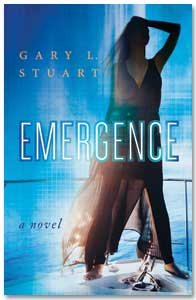The prompt for this blog is the stunning revelation in April 2023 by the U.S. Government that a twenty-one-year-old Airman assigned to a National Guard base in Massachusetts had leaked U.S. classified documents that detailed “everything from Ukraine battlefield assessments to covert surveillance of American allies . . . he was arrested and later appeared in court charged with two separate counts related to the unauthorized handling of classified materials . . . he faces a maximum sentence of 15 years if convicted . . . he used his access to sensitive information as a computer network specialist to post documents bearing top secret markings to an online gaming chat group.”[1]
The 2023 leak of classified documents fits into a pattern of leaking classified government documents in the U.S. It is the latest leak. Some former leaks changed the course of US history and were hailed as heroic – while others landed their leakers in prison for years.
The Pentagon Papers leak is the most famous. “In 1971, Daniel Ellsberg, an analyst at the RAND Corporation, leaked a report commissioned by the US military about the Vietnam War. The conflict was widely criticized at home and abroad, and the report revealed the extent to which the US government had kept details from the public. The New York Times used the documents to publish a blockbuster expose on the scope of America’s actions in Vietnam. Mr. Ellsberg was initially charged with espionage, but a judge dismissed the charges in 1973. Now 92, he is now considered one of the most important government whistleblowers in US history, and a well-known advocate for government transparency.”[2]
In 2013 NSA Edward Snowden leaked a tranche of intelligence documents to the Guardian and the Washington Post, showing that the US government was illegally collecting citizens’ phone data. Those documents revealed the inner workings of the secretive National Security Agency, one of the primary US intelligence agencies. They also shed significant light on the secretive data collection actions taken by governments around the world, including US allies like the UK, Australia, and New Zealand. The US government charged Mr. Snowden with espionage and theft of government property, and Mr. Snowden eventually gained asylum in Russia, where he now lives in exile.[3]
In 2010, Chelsea Manning, then a soldier and analyst in the US Army, began sharing thousands of classified documents with Wikileaks. “The organization, then led by Julian Assange, was dedicated to publishing secret documents provided to the media. The trove of documents provided by Manning contained details about the wars in Iraq and Afghanistan, as well as a tranche of diplomatic cables. Wikileaks then made many of them public and the documents were covered by major media organizations.”[4]
The list is long, the leaks dangerous, the outcomes tragic, or inspiring, depending on which side of the government fence you’re on. But this blog is not about leaking or classified documents. It’s about writing the facts of the leak and the content of the classified documents. Another way of thinking about the dichotomy is to ask the lesser of two evils—the leaker or the publicity seeker who reveals what the leaker leaked.
WikiLeaks is a multi-national media organization and associated library founded by Julian Assange in 2006. He is an Australian editor, publisher, and cypherpunk activist. He was convicted in Australia for hacking in 1996.[5]
If you didn’t know, cypherpunks advocate widespread use of strong cryptography and privacy-enhancing technologies as a route to social and political change. Privacy enhancing is not remotely related to the First Amendment. At first blush, and lingering on after a careful examination, it’s easy to conclude that cypherpunking is oxymoronic. Its advocates argue that privacy is necessary for an open society in the electronic age. This takes some time to wash out and strong soap to absorb what they mean. Privacy is “necessary” for an open society? Wouldn’t that mean if your society is open then you have no privacy? Or vice versa? To confuse, cypherpunks differentiate privacy from secrecy by explaining that private matters are things the holder doesn’t want the world to know. On the opposite side of that bent coin is their argument that a secret matter is something nobody should know. As though whistling through the graveyard of words they come up with a sort of manifesto—Privacy is the power to selectively reveal oneself to the world.[6]
“If two parties have some sort of dealings, then each has a memory of their interaction. Each party can speak about their own memory of this; how could anyone prevent it? One could pass laws against it, but the freedom of speech, even more than privacy, is fundamental to an open society; we seek not to restrict any speech at all. If many parties speak together in the same forum, each can speak to all the others and aggregate together knowledge about individuals and other parties. The power of electronic communications has enabled such group speech, and it will not go away merely because we might want it to.”[7]
To follow cypherpunk reasoning, group speech trumps laws, jumps over tall buildings, and escapes its original habitat for closed societies like Russia. It is illegal to use encryption without a license in Russia.[8]
WikiLeaks specializes in the analysis and publication of large datasets of censored or otherwise restricted official materials involving war, spying and corruption. It has so far published over 10 million documents and associated analyses. Its founder, Julian Assange, said, “WikiLeaks is a giant library of the world’s most persecuted documents. We give asylum to these documents, we analyze them, we promote them, and we obtain more.”
Most readers blink at least twice when told that documents can be persecuted. Persecute is a transitive verb meaning, to harass or punish in a manner designed to injure, or grieve. To persecute a document is bumpkin talk. You can persecute the writer of a document. Or a document’s owner, or even a person who leaked someone else’s document. But documents are non-prosecutable.
However, like serial self-plagiarism, there are arguments that leaking classified documents is ethical. “Research has found that people are willing to blow the whistle when they believe that their organization has engaged in ‘corrupt and illegal conduct.’ They may also speak up to prevent larger threats to cherished values, such as democracy and the rule of law. Law professor Kathleen Clark uses the phrase ‘public interest disclosures’ to refer to such leaks. Scholars who study leaking suggest that it can indeed be ethical to leak when the public benefit of the information is strong enough to outweigh the obligation to keep it secret.”[9]
The ethics of leaking confidential government documents was big news in 2013. Edward Snowden became famous. “Snowden released confidential government documents to the press about the existence of government surveillance programs. According to many legal experts, and the U.S. government, his actions violated the Espionage Act of 1917, which identified the leak of state secrets as an act of treason. Yet despite the fact that he broke the law, Snowden argued that he had a moral obligation to act. He gave a justification for his ‘whistleblowing’ by stating that he had a duty ‘to inform’ the public as to that which is done in their name and that which is done against them. According to Snowden, the government’s violation of privacy had to be exposed regardless of legality.”[10]
Ignoring whether the leaked document is classified for the moment, there are good and bad document leaks. “Good leaks are disclosures of information that expand public understanding of an issue of public interest – without harming anyone. A leak also can be good if it illuminates understanding of an important issue even if it harms someone, as long as the public interest at stake is significant-lives and health are at risk; a crime, such as fraud is being committed; public monies are being misspent. Bad leaks do harm and do not aid public understanding of an important public issue. A bad leak is also one that does too much harm as it tries to inform the public regarding an important issue.”[11]
Whew! Now that we have context for the ethicality of leaks, what about media releasing not just the fact of someone leaking confidential documents, but repeating or re-revealing the confidential information already leaked? There is a long history of journalists arguing the ethics of re-distributing facts or the contents of classified documents. “Many journalists have had legitimate debates and disagreements as to whether or not publishing this type of information lives up to the highest standards of journalism. Although there are certainly valid arguments to be made in both directions, it is ethical for a journalist to publish this type of material, if it is uncovering information that is vital to the public interest.”[12]
Is it that simple? Why is it ethical for a journalist to redistribute classified information if it unethical for a government employee to do it if they are acting in the public interest? The Edward Snowden classified information dump is arguably the best one to examine for both his ethicality and the ethicality of journalists who did what he could not do. He could only reveal the facts to the media. They took what he stole and redistributed it to the world.
“Three journalists—Barton Gellman, Laura Poitras, and Glenn Greenwald—received highly-classified government documents from Snowden. The documents included information relating to the National Security Agency’s mass surveillance program and bulk data collection. They made the decision to publish the information, as they believed that it was crucial for the citizenry to know this information. Even though there are varying opinions with regard to Snowden’s actions, I believe that a fair assessment of this situation shows that it was appropriate for these journalists to release the information, so the public would be informed on the matter.”[13]
The irony is that the media justification for releasing what they knew to be classified material is acting in the public interest, which is exactly why Snowden was indicted—for not acting in the public interest. “There may be many controversies in the years to come with regard to the publishing of classified or stolen material. Journalism, unlike some other professions, is not necessarily confined to those with a certain set of credentials. Whereas doctors and lawyers have to obtain a specific degree in order to practice in their respective field, journalism is much more widely accessible. As such, this leads to many disagreements in the public sphere, regarding what constitutes journalism and who constitutes a journalist. The criteria for this is often ambiguous and are likely to continue to be in future years, due to the ever-increasing prevalence of citizen journalism, advocacy journalism, and other digital platforms, such as blogs.”[14]
At the end of the day, as the Brits say, leaking confidential data is bad for the leaker, dangerous for the owner of the leaked information, and ethically permissible for media redistribution. All hail the freedom of the press.
[1] https://www.cnn.com/2023/04/13/politics/us-government-intel-leak/index.html
[2] https://en.wikipedia.org/wiki/Pentagon_Papers
[3] https://www.bbc.com/news/world-us-canada-65281470
[4] https://www.history.com/this-day-in-history/wikileaks-publishes-first-documents-leaked-by-chelsea-manning
[5] https://en.wikipedia.org/wiki/Julian_Assange
[6] https://nakamotoinstitute.org/cypherpunk-manifesto/
[7] Ibid https://www.makeuseof.com/who-are-cypherpunks-and-what-are-they-advocating-for/.
[8] https://www.makeuseof.com/who-are-cypherpunks-and-what-are-they-advocating-for/
[9] https://www.civilbeat.org/2017/06/why-leaking-classified-information-is-sometimes-ethical/
[10] https://ethicsunwrapped.utexas.edu/case-study/edward-snowden-traitor-hero
[11] https://www.scu.edu/ethics/focus-areas/journalism-and-media-ethics/resources/the-ethics-of-leaks/
[12] https://theclick.news/opinion-the-ethics-of-journalists-publishing-classified-or-stolen-information/
[13] Ibid.
[14] Ibid.

I am an author and a part-time lawyer with a focus on ethics and professional discipline. I teach creative writing and ethics to law students at Arizona State University. Read my bio.
If you have an important story you want told, you can commission me to write it for you. Learn how.






 I am an author and a part-time lawyer with a focus on ethics and professional discipline. I teach creative writing and ethics to law students at Arizona State University.
I am an author and a part-time lawyer with a focus on ethics and professional discipline. I teach creative writing and ethics to law students at Arizona State University.  My latest novel is Emergence, the sequel to Let’s Disappear.
My latest novel is Emergence, the sequel to Let’s Disappear.  If you have an important story you want told, you can commission me to write it for you.
If you have an important story you want told, you can commission me to write it for you.